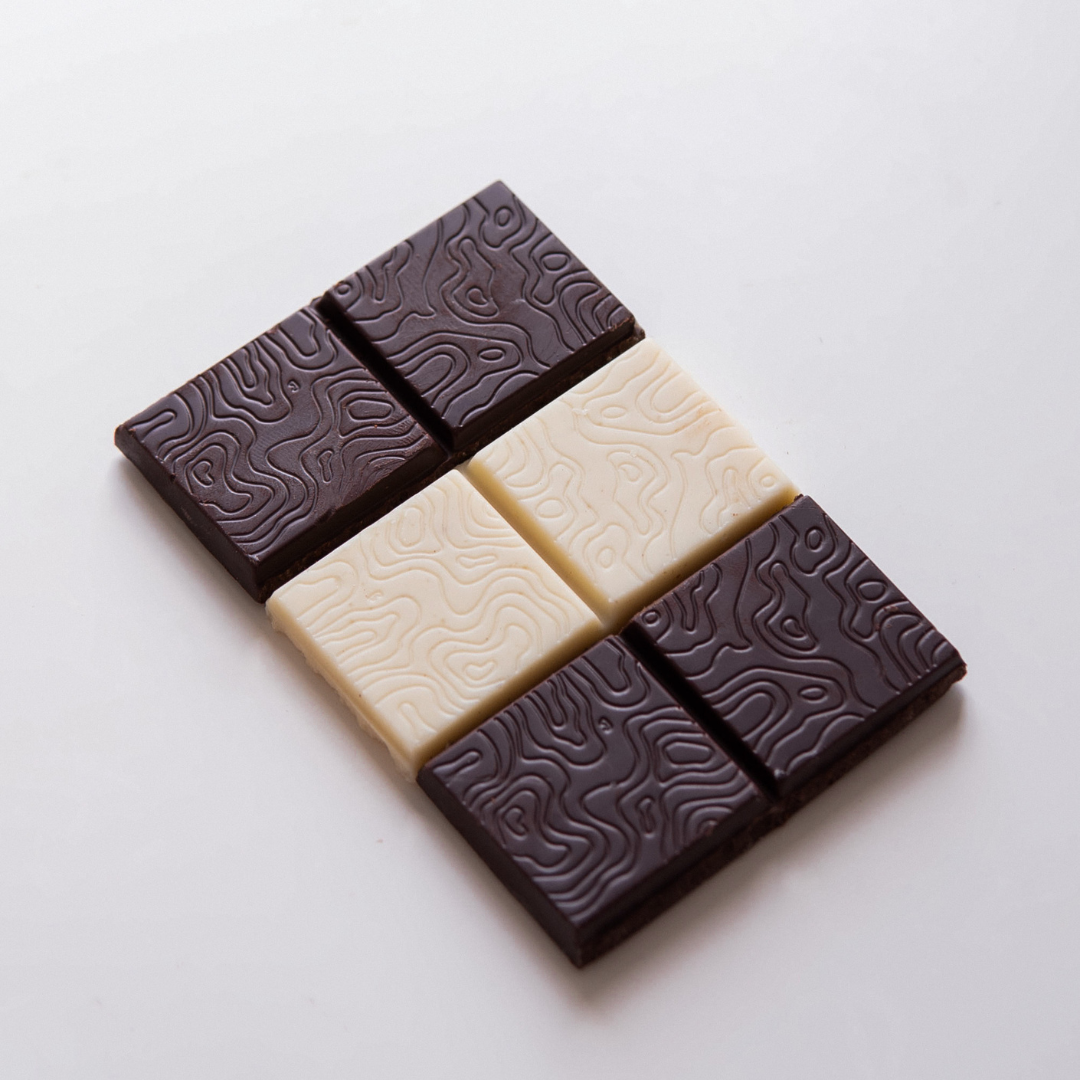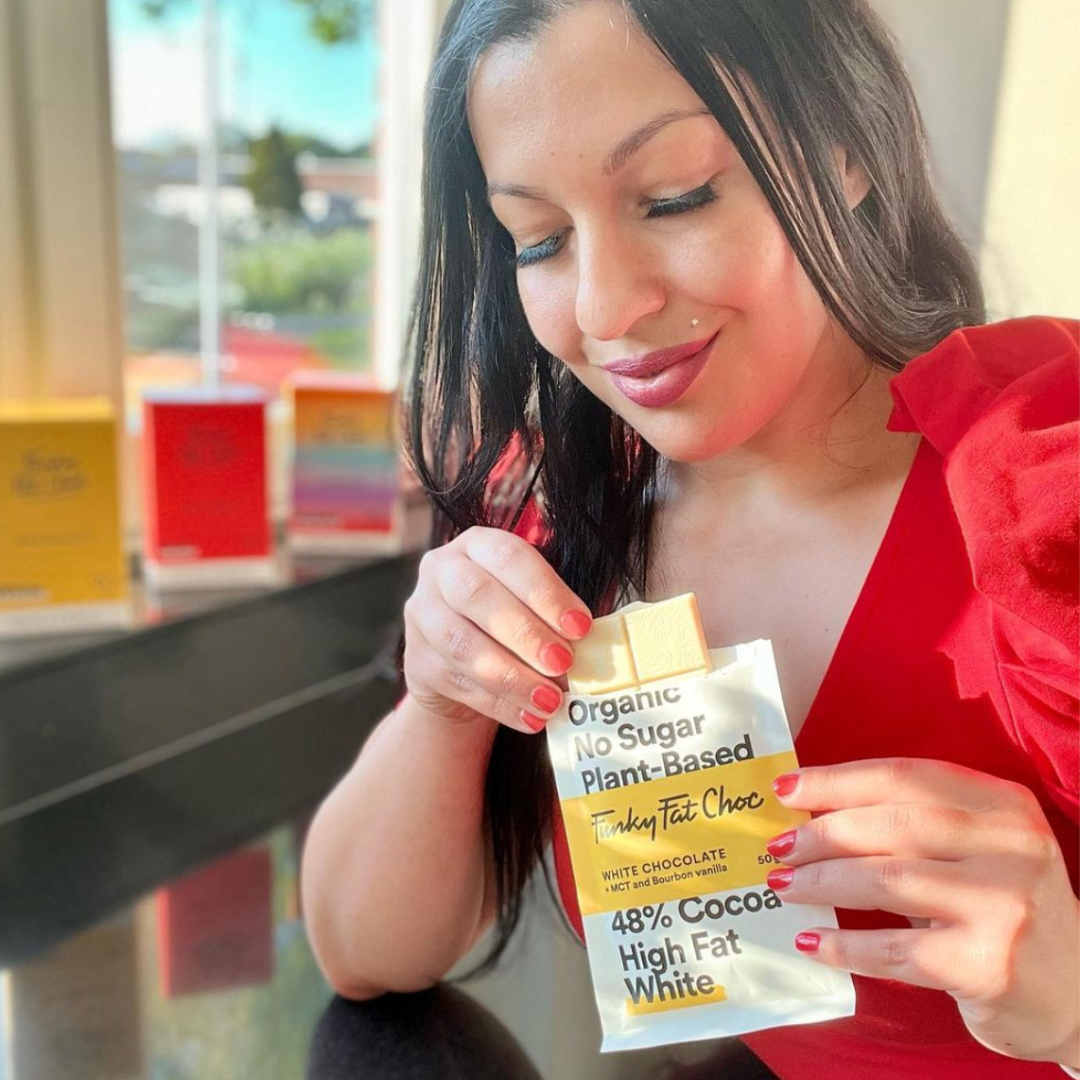Functional foods have gradually gained popularity in health and wellness circles in recent years. We briefly talked about them in our podcast when we talked with Pauline Cox. Functional foods are highly nutritious and associated with a number of powerful health benefits, they may protect against disease, prevent nutrient deficiencies, and promote proper growth and development.
In today’s article, we’ll talk about what are functional foods, the best functional foods that you can find, and also why our Funky Fat Chocolates are considered functional foods.
What are Functional Foods

The concept of functional foods originated in the 1980s when the Japanese government created foods with proven benefits that included benefits beyond those covered by basic nutrition like protein, carbs, etc.
Basically, these foods are ingredients that offer a great amount of health benefits that go beyond their nutritional value. Some types of functional foods are supplements that are designed to improve your health. Some examples include foods fortified with vitamins, minerals, probiotics, or fiber. However, foods like fruits, vegetables, nuts, seeds, and grains, which are nutrient-rich ingredients, are often considered functional foods as well.
As we’ve already mentioned, functional foods are associated with several health benefits, so let’s check a few of them!
1- Prevent nutrient deficiencies
Since these foods are high in important nutrients, including vitamins, minerals, healthy fats, and fiber. Filling your diet with functional foods (both conventional and fortified foods) ensures you get the nutrients you need so you don’t have imbalances or nutrient deficiencies and be healthier.
2- Protect against disease
Since these types of foods provide important nutrients that can help protect against disease. A lot of Functional Foods are quite rich in antioxidants. These molecules help neutralize
harmful compounds known as free radicals, helping prevent cell damage and certain chronic conditions, including cancer, diabetes, or heart disease.
Also, some of these foods are high in omega-3 fatty acids. This healthy type of fat is proven to reduce inflammation, boost brain function, and promote heart health. Other types are rich in fiber, which promotes better blood sugar control and protects against conditions like obesity, heart disease, stroke, and diabetes. Fiber also helps with some digestive disorders.
3- Promote proper growth and development
There are certain nutrients that are essential to correct growth and development in babies, infants, and children. By adding a wide range of nutrient-dense functional foods to your diet (or your kids' diet) you’ll be making sure that all nutritional needs are covered. Also, it will be beneficial for growth and development if you include foods that are specifically fortified with certain nutrients.
Adding functional foods to your diet it’s actually way easier than you may think. Most times you don’t have to even make big diet changes to include them in your nutrition, you just have to pay more attention to your groceries list and your meals.
1- Funky Fat Chocs
Yes, they are considered to be functional foods because of 2 reasons, the ingredients used to make them are just natural and functional ingredients, and also, one of the main ingredients of our bars is the MCTs.
MCTs (Medium-Chain Triglycerides) are medium-length chains of fatty acids that, unlike long chains, go straight to the liver and are absorbed faster, improving mental clarity, performance, and memory. The liver digests them more easily and converts them into ketones which are a more steady energy source than glucose and help your body feel fuller for a longer period of time. For the Funky Fat Chocolate bars, we use C8 and C10, which have strong antibacterial and antifungal properties and have been shown to improve skin conditions like acne, psoriasis, and dermatophilosis. However, due to these properties they also improve gut health, and fight Candida Albicans.
2 - High antioxidant foods
In this group, we will include a wide variety of brightly colored fruits and vegetables, especially leafy greens, berries of all kinds (goji berries, açai, raspberries, cranberries, blueberries, blackberries, etc.) oranges, papaya, bell peppers, cruciferous veggies, etc. These are the best sources of antioxidants that support cellular health and fight oxidative stress.
3 - Green power foods
Grasses, spirulina, chlorella, wheatgrass, barley grass, etc. are full of phytonutrients, vitamins, and minerals that can be hard to obtain from other plant foods.
4 - High-fiber foods
As we’ve already mentioned, fiber is important for digestive and gut health, heart, and appetite regulation. You can find it in vegetables, fresh fruits, coconut, avocado, legumes, nuts, and seeds.
5 - Probiotic foods
In this group, we include fermented/cultured foods, such as yogurt, kefir, kombucha, and cultured veggies like sauerkraut and kimchi.
Probiotics have different roles, including helping with the absorption of nutrients, helping our gut health, preventing common digestive issues, and fighting infections and inflammation.
6 - Prebiotics
Prebiotics are fibers that resist digestion and help feed probiotics in the gut. Foods like leeks, onions, garlic, asparagus, artichokes, beans, etc. are great prebiotics. Eating raw plant foods is one of the greatest ways to obtain more probiotics, as well as digestive enzymes that support nutrient absorption.
In case you want to use supplements for your prebiotics, it is recommended to take symbiotics, which include one pill pre and probiotics, which will make it easier for you. Make sure you check the ingredients list always before purchasing to be sure no other unnecessary ingredients are present.
7 - Omega-3 foods
Omega-3s help lower your risk of heart disease, depression, joint pain, and much more. They support brain function as well. Salmon, sardines, halibut, mackerel, walnuts, chia seeds, and flax seeds are the best way to eat omega-3.
8 - Nuts and seeds
By eating on a daily basis a handful of nuts and/or seeds you’ll be adding healthy fats and fiber to your diet, which are great to protect your heart and brain and keep hunger in check since they’re quite satiating.
9 - Herbs, spices, and teas
Green tea, black tea, ginger, turmeric, parsley, cinnamon, etc. all of which are high in antioxidants and hence are great for our health. A few of them also have anti-inflammatory and antimicrobial properties.
Pure and clean dark chocolate, cocoa, and coffee are also included in this category since they are high in phytonutrients and they’re also considered functional foods.
10 - Bone broth
Bone broth is rich in amino acids, vitamins, collagen, minerals, electrolytes, and even antioxidants. So it’s a great food to include in your diet. You can either make it yourself or buy it at the store. When using store-bought bone broth, always read the label and make sure that it contains only the necessary ingredients.
Functional foods play a crucial role in maintaining our health and well-being, as they are designed to provide additional health benefits beyond basic nutrition. Funky Fat Chocs are a perfect example of a functional food, as they not only taste great but also contain healthy ingredients such as plant-based fats, protein, and fiber. These delicious on-the-go snacks are a convenient way to get the nutrients we need to support our busy lifestyles, making them a tasty and functional addition to any diet.




Leave a comment
All comments are moderated before being published.
This site is protected by hCaptcha and the hCaptcha Privacy Policy and Terms of Service apply.